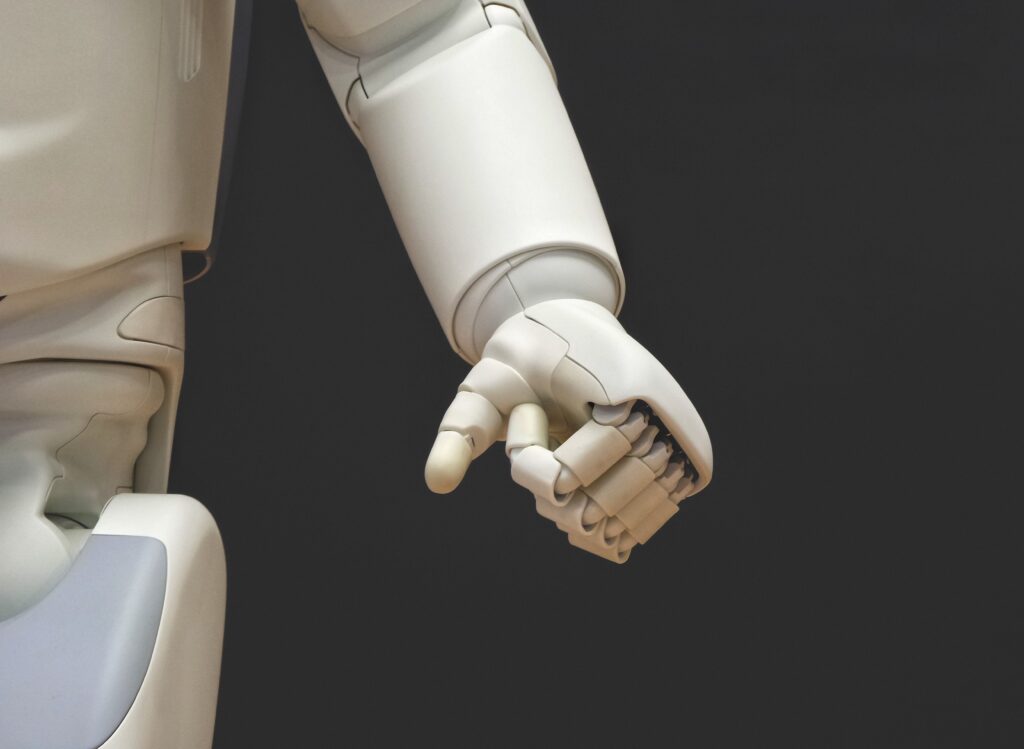Artificial intelligence now impacts almost every aspect of work. We must not only live with it, but make the most of this collaboration
by Marco Bentivogli

The growth of computational, processing and data storage capabilities is leading to far-reaching changes. And the use of artificial intelligence (AI) is increasingly widespread in many areas of our lives; an innovation which, in truth, is not recent, but which is increasingly characterized by increasing speed and pervasiveness and this makes it difficult to develop.
One of the most relevant aspects is the impact of AI on work. There are different levels of AI: from weak to strong to general. Obviously the level of ability is decisive in configuring a more or less central role of the person in the work: from the strong to the general level, algorithms equal and surpass human capabilities, making the issue increasingly complex. But, in any case, in any process or activity divided into input, processing and output, the person has an important role. Data entry cannot be entirely delegated to machines as there would be a risk of a digital "trawling" in which the AI collects quality information, but also distortions of all kinds. The next phase, the processing, must instead be delegated to the machine which, at the end, will provide its evaluation. The output is the result of a calculation, to which we must add our decision, based on an evaluation in which conscience, ethics, feelings, humanity come into play.
Artificial intelligence is a sort of synthetic brain that enables process automation and which, together with advanced work organization systems and new skills, is changing work and its nature. The effort to be made is to focus attention on how artificial intelligence is redesigning the form and content of work and the real challenge will be the ability to develop new skills that are different from those from which machines free us.
Where and how does AI enter the work
One of the clearest definitions of AI is the one that describes it as “the art of delegating to computational machines tasks and tasks that people today do best”. But we must bear in mind that sometimes the cost of this renunciation of delegation is very high: in terms of job security, its routine and, consequently, the meaning and quality of the work itself. However, not everything can be delegated. AI has a constraint: to recognize all human actions as something "calculable". All this allows us to define the type of work that we should develop more, the one in which our skills are uncontestable and cannot be calculated with is from any algorithm or thinking machine. Our uniqueness and unrepeatability are, in fact, the result of our humanity, from which derive our critical, lateral, strategic thinking and our endowment of semantic capital, i.e. our ability to assign value and meaning to things.
As far as Italy is concerned, the data show, even before the pandemic between 2010 and 2018, a positive correlation between the professions exposed to AI and those with a high content of cognitive activities. It is a negative correlation, which therefore seems to predict a displacement of routine jobs, both clerical and manual.
In fact, AI is transforming jobs and occupations. Analyzes of labor market data across countries converge on one thing: Absolute and relative demand for AI-related skills has grown across all industry sectors and occupational groups. Jobs that require AI skills have a positive pay gap of 11% versus similar jobs that do not. However, AI is at least as much a technological and managerial challenge as it is primarily a cultural and design one. Real productivity gains will only come when there are managers and above all architects of the new job able to use AI to create and acquire value around people.
What are the risks we run?
The interaction and hybridization between man and thinking machine is growing and evolving rapidly. Specifically, artificial intelligence is likely to reshape many people's work environment, nature, professional content. New environments need "architects of the new job". The critical issues, of course, are evident in several areas.
- Participation and planning: if the grafting of technologies is not accompanied by a robust investment in worker participation and in the design of new architectures, the latter will be disappointing with respect to the expected results.
- Hierarchies, relationships and acquisition paths role skills must all be rethought on new paradigms, otherwise, the company does not work and people's well-being deteriorates.
- Workers "exposed" to the use of AI they have higher employability and higher wages. A positive aspect that must not lead to a polarization between workers, with growth of inequalities.
- Firms with excessive market power I can centralize the revenues related to the use of AI by producing the same polarization between "innovators and traditional workers" at the firm level.
For these risks, alongside a modern regulatory activity, it would be necessary to understand and facilitate territorial development within innovative ecosystems, the only ones that can allow lowering the threshold of access to skills and technologies also for SMEs.
And the labor market?
Technology has created more jobs in the past decades than it has replaced. Technology and innovation are changing the nature of work, leading to the demand for advanced cognitive skills and greater adaptability among workers. Data from numerous researches on Europe tell us that while technology replaces some jobs, in general the demand for work also increases. The digital "unfreezes" the space (its places) and the time (hours) of work. It questions the two-tone highway employee/self-employment. The third lane is growing, not just for platform-related jobs, but for all work. The cultural and ideological resistances to the recognition of the new work deliver it to the void of new regulations and new juridical and contractual containers. The ways and conditions with which people work would require an urgent rethinking of social protection systems which, especially in Italy, do not protect non-standard contracts, such as VAT numbers.
But it must also be added that, in order to evaluate its substitutability, AI cannot do everything and that people also have very diversified abilities. According to research, digital and AI allow social distancing, protecting work. In reality, they also allow us to imagine work organization systems that limit proximity not only with people, but also with machines and workplaces.
Our social protection systems and contractual protections are systemically based on stable wage employment, clear definitions of the employer, his responsibilities and employment relationship, and an anticipated retirement date. This approach, however, affects a dwindling number of people and leaves out a growing number, as the changing nature of work disrupts the very regulatory capacity of traditional regulations. Technology shifts employers' demand for benefits for workers towards services that protect employment and income discontinuities and, above all, the subjective right to quality training throughout the working life. The horizon full time, indefinitely, is not only a betrayed promise but leaves out of all rights all the others.
Marco Bentivogli he is the National Italy Base Coordinator, an expert on labor policies and industrial innovation.





